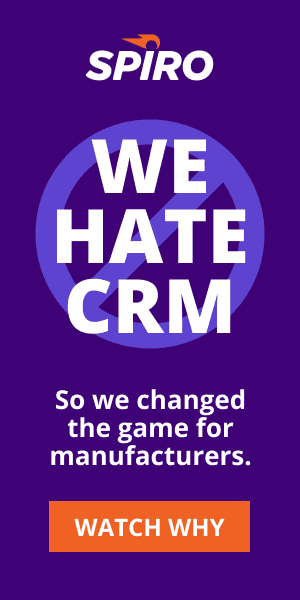6 Ways Sales Will Change Over the Next 10 Years
The world is changing at an increasingly rapid pace. Innovations and disruptions are affecting almost every profession, and sales definitely isn’t immune. While sales has remained a relatively consistent profession, with its core areas of prospecting, pitching, and closing immutable, the near future is likely to have a lot in store for salespeople.
Some of these changes are already evident in sales workforces across the globe, and you can expect things to keep evolving at a steady clip over the next decade. Here are six ways that sales is likely to change over the next ten years:
1. Tech will continue to eat the world
Technology companies are springing up left and right, and disrupting every industry under the sun. The pace of technological innovation is unlikely to slow as more and more people set out to build the next great thing. This means that tech sales will continue to grow and that non-tech industries will have to adopt more and newer technology to stay competitive. This means it’s critical to develop at least some tech competency as a salesperson.
2. Salespeople will become cyborgs
Okay, maybe not literal cyborgs, but salespeople and their technology will essentially become one over the next ten years. New sales technologies, like Spiro’s Proactive Relationship Management platform, will enhance salespeople and turn them into smarter, more productive machines, eliminating wasteful and redundant tasks and helping them close more deals. Rather than the doom and gloom scenarios of technology replacing salespeople, it’s more likely to act as a complimentary addition to their process.
3. Communication will become more digital
Face to face meetings will remain important, especially on bigger deals. However, we’re likely to see the trend of communicating digitally continue to grow as people feel more comfortable behind their phones and screens. Already, texting with prospects and customers is an acceptable form of communication, as are video chats and zoom meetings. So, it’s unlikely that we’ll see the phone call or the in-person meeting grow in popularity – at least for the foreseeable future.
4. The pace of change will accelerate
Moore’s Law of technology states that a processor doubles in capacity every two years, and this has been true since 1970. Koomey’s Law states that at a fixed computing load, the amount of battery you need will fall by a factor of two every 18 months, which has also been largely true since 1945. The pace of technological change seems exponential, and isn’t showing any signs of slowing down. So one way or another, most salespeople are likely to be affected over the long term.
5. More overlap with marketing
The salesperson of the future won’t just sit back and wait for the leads to roll in. Instead, they’ll be working closely with marketing on a more integrated process where each side knows what the other wants. Similarly, social media and new forms of reaching people will create opportunities for salespeople to market themselves and grow their own book of business – a trend that’s become increasingly popular over the last several years.
6. Niching down
While going after huge markets is what can make a company worth billions, increasingly, businesspeople are focusing on narrowing their focus into what are being referred to as micromarkets. This involves taking a larger market and breaking it down into smaller segments. Then, salespeople look at those segments to assess where the opportunity for growth is and to identify where the trends are. Salespeople will need to become adept at identifying and selling into these smaller markets, and become experts that are able to keep up with emerging trends and serve as their company’s trusted micromarket specialists.

